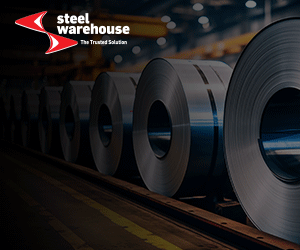Preparing for the Next Economic Downturn
Now is the time to take the necessary steps to set up your business for success before a downturn.
Posted: July 19, 2022
While business seems to be good right now, it’s almost too good to be true. One thing to remember is that the further you get away from a recession, the closer you get to another one.
But despite the uncertainty that recessions bring, their patterns are predictable. We now see indicators of the next downturn, such as rising interest rates, labor shortages, inflation, product scarcity, supply chain disruptions, and large influxes of new business for many industries. These trends are unsustainable in the long run, and it’s only a matter of time before the bubble bursts.
So, how can you help prepare your business for a recession? To determine if you’re prepared, one question you can ask yourself is: “If there was a sudden drop in revenue for one year, can I make it?” If the answer is no, then you should take the necessary steps to set up your business for success before the downturn. Recessions tend to last for about a year, so here’s what you need to know about bracing your business for impact.
Diversify Your Work
As the saying goes, don’t put all your eggs in one basket. There’s only so much of a good thing you can take and relying on heavy customer or industry concentrations tend to be scenarios where companies get pinched when problems arise. Try to find a way to diversify your revenue while you can, such as performing work in different industry segments, different capabilities, and with different customers. When times get tough and you need to diversify, it will be too late — preparing late is scrambling and that’s a lesson to be learned in itself.
Create Equipment Optionality
When attempting to diversify, you may not have the right equipment to tackle new capabilities. If you have customers that are looking for additional services, I don’t want to make an equipment purchase, consider outsourcing some services. This allows you to adjust production capabilities as demand fluctuates.
If additional services become necessary, consider purchasing used equipment instead of new. Used equipment typically costs less than new equipment and you won’t take an immediate depreciation hit when you take it off the lot when compared to buying new. But consider your options carefully as sometimes used equipment comes with increased maintenance costs.
Build Equity in Equipment
If you’re in need of equipment for your business, you should consider buying equipment and financing it at a slightly uncomfortable term. Instead of financing a piece of equipment for seven years, do it for four years. The shorter your term, the faster you build equity. This is very important later if you need to get working capital because equity in equipment can be borrowed against. Also, building equity makes selling a piece of equipment easy versus having to either come up with the cash to make the sale happen or forgoing the sale altogether.
Set up a Cushion
If you’re tight on cash today, you’re going to be tighter when things slow down. The exact timing of a downturn, or a period of growth, always seems to catch one off-guard. But it’s almost a certainty that your business will face both opportunities and challenges. Dress your business for all occasions — if you have a debt repayment structure in place with a cushion and you get an opportunity, you have room to play offense; if the economy takes a downturn, you have something to fall back on and play defense. The best way to build a cushion is through refinancing and utilizing the equity in your existing equipment. Take advantage of the values that exist today, or you could end up asking for an “underwater loan” down the road.
Balance your Balance Sheet
Take a close look at your balance sheet, specifically the balance between your accounts receivable versus accounts payable. When a recession hits, you get paid slower, which puts pressure on your ability to take care of payables. You don’t want to find yourself in a pinch with your suppliers, so take the time needed to clean up your balance sheet. Without staying on top of your receivables and payables, you can’t effectively manage your cash flow.
Make a Cash Flow Runway
All things being equal, how long will it take you to pay off all your business debt? Ratio matters — look at cash flow generated in one year compared to your long-term debt plus current maturities (amount of long-term debt due in the next year). Your total term debt divided by your total cash flow is critical. The lower the number, the better. A good spot to be is where your anticipated cash flow provides at least enough “runway” to pay the next 12 months of debt payments. If not, consider an equipment refinance or debt consolidation.
Bring Your “A” game
I’ve been through many recessions, and one lesson I’ve learned is that, at the end of the day, cash flow didn’t pay the bills — it was the character of the people who did. Don’t wait until an economic downturn to appreciate and take care of your customers (you should be doing this already). When it’s your market, you get the pricing power. But when times get tough, how you treat(ed) your customers will matter. When there are fewer production jobs to go around, you want to be remembered as a great company to work with.
While you may not be able to pursue all these steps, you can decide which ones make the most sense at this time. Consult your financial partners and ask them to help evaluate your current situation, look at balance sheets, brainstorm ideas, and come up with recommendations for you and your business.
Subscribe to learn the latest in manufacturing.















